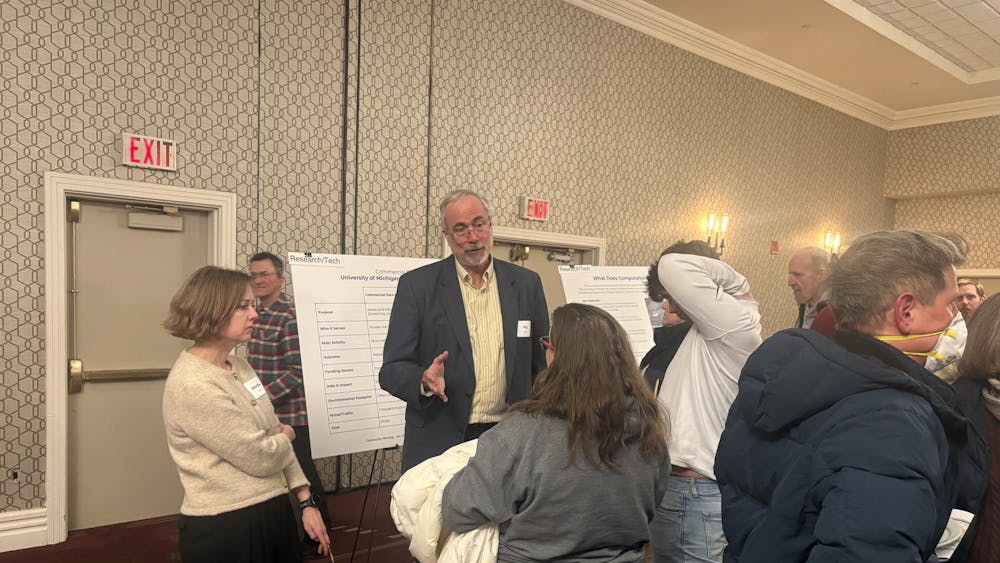The Gender Awareness Program hosted a workshop in the Student Center on Tuesday with a sparse turnout but stimulating conversation.
Mary Larkin, program coordinator for the LGBT resource center, and Ricci Cole, transgender advocate for the LGBT Resource Center, led the workshop. They began by asking the audience what they believed was the difference between gender and sex. Some people didn’t really know the difference, while others answered the question without hesitation. The audience agreed that gender is socially constructed and sex is biological.
“I was shocked by this workshop because I didn’t know the difference between sex and gender,” Steffanie Bulmer, an EMU freshman, said. “I never thought anything could be in the middle of feminine and masculine.”
Larkin and Cole brought out two pieces of paper with the words feminine and masculine written on them. On another piece of paper, the audience was told to write activities they do on a daily basis.
Later, Larkin and Cole compiled the answers, wrote them on sticky notes and stuck them on the wall for everyone to see, and told the audience to act as society does to judge whether each activity is more masculine or feminine.
When the audience ranked all of the activities on the feminine to masculine spectrum, Larkin and Cole talked about each activity. When they mentioned each activity, they asked the audience to stand up if they do the activity on a daily basis. Then, they ranked the activities again on how many females and males in the audience got up, displaying the reality of what genders do each activity.
“The activity was interesting because of how many more people think that certain things just focus on males,” freshman Charlene Gamble said. “One example was that chopping wood is seen as more of a male activity, but we saw today that that isn’t the reality.”
The discussion accompanying the activity revolved mostly around topics such as video games, asking for directions, babysitting and sports.
Video games are regarded as being more masculine, because most video games are geared toward men and game designing is a predominately male field.
Similarly, men are closer associated with sports and athletic activities. Even women who play sports are thought of as more masculine. On top of this disproportionate view, women’s sports also get less coverage and respect than men’s sports.
“I believe the separation in coverage of sports is very sexist because women are just as good as males in sports, but no one really knows that because they only see men in mainstream sports,” a freshman attendee said.
When talking about people who ask for directions, the audience said that pride is a major factor.
Men don’t want to admit that they are lost since this is seen as lacking knowledge. Lacking knowledge is seen as a weakness and women are considered weaker than men in society.
In regards to babysitting, the audience agreed that women are seen as more nurturing and more capable of caring for children, but this may not always be true. Students said that there are many women out there who are not capable of properly caring for children, and many men who are very good caretakers.
To wrap up the discussion, the group talked in more depth about stigma and identity. The leaders of the workshop told the group to simply be aware of the reality of gender-related activities versus what society thinks is right for each gender.
“I want them to think of gender on a broader spectrum and think about how to view gender as much more of a spectrum than just strictly men and woman,” Larkin said. “We also have to meet people in the middle because some know about gender problem and others don’t.”









